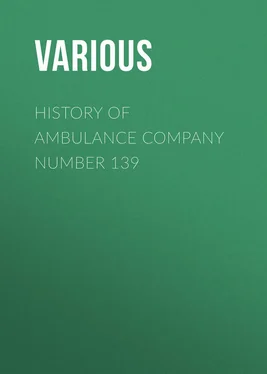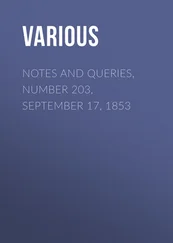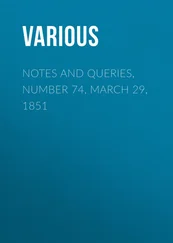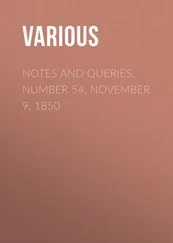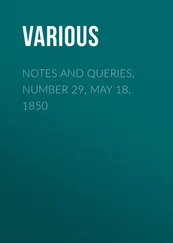Various - History of Ambulance Company Number 139
Здесь есть возможность читать онлайн «Various - History of Ambulance Company Number 139» — ознакомительный отрывок электронной книги совершенно бесплатно, а после прочтения отрывка купить полную версию. В некоторых случаях можно слушать аудио, скачать через торрент в формате fb2 и присутствует краткое содержание. Жанр: Медицина, История, foreign_edu, на английском языке. Описание произведения, (предисловие) а так же отзывы посетителей доступны на портале библиотеки ЛибКат.
- Название:History of Ambulance Company Number 139
- Автор:
- Жанр:
- Год:неизвестен
- ISBN:нет данных
- Рейтинг книги:4 / 5. Голосов: 1
-
Избранное:Добавить в избранное
- Отзывы:
-
Ваша оценка:
- 80
- 1
- 2
- 3
- 4
- 5
History of Ambulance Company Number 139: краткое содержание, описание и аннотация
Предлагаем к чтению аннотацию, описание, краткое содержание или предисловие (зависит от того, что написал сам автор книги «History of Ambulance Company Number 139»). Если вы не нашли необходимую информацию о книге — напишите в комментариях, мы постараемся отыскать её.
History of Ambulance Company Number 139 — читать онлайн ознакомительный отрывок
Ниже представлен текст книги, разбитый по страницам. Система сохранения места последней прочитанной страницы, позволяет с удобством читать онлайн бесплатно книгу «History of Ambulance Company Number 139», без необходимости каждый раз заново искать на чём Вы остановились. Поставьте закладку, и сможете в любой момент перейти на страницу, на которой закончили чтение.
Интервал:
Закладка:
While on the train a humorous incident occurred. The officers heard from some underground source that "Snowball," our dark-complexioned porter, had been passing "Old Evans" around to the boys in a promiscuous fashion. And at the same time "Snowball" heard in the same way that the officer of the guard was going to make a search of his possessions for this precious "fire-water." The search was made, with Snowball looking on wild-eyed, and the officer detective was about to give it up, when he noticed a string leading out the window, and upon investigating found the poor half-dead soldier (bottled in bond) tied by the neck to the other end of the string.
The last night of riding brought us near to the eastern coast, and soon after daybreak on May 12th the train stopped at Jersey City. We slung our packs and pushed our way through the station to a ferry boat. From this point many of us had our first view of New York and the salt water. After loading on the ferry we were pulled out into the East River, where the boat remained for the greater part of the day. At last it moved on and we landed in Long Island City. Dragging our packs and barrack bags, we marched wearily to a Long Island train. A few hours' ride brought us to Garden City, and truly it was well named, for with its low, well kept hedges, its English gardens and its wild flowers growing everywhere, it looked like a garden city. From Garden City to Camp Mills was a weary hike but we finally reached there, and after eating supper, we crawled under our three O. D.s and slept.
During our five days stay at Camp Mills, some of the men were granted passes to New York City, but we left before all the men had a chance to visit that city of bright lights. The day before we departed we were given the last of our overseas equipment, including the pan-shaped steel helmet.
THE TRIP ACROSS THE ATLANTIC
After spending five chilly nights at Camp Mills, Long Island, and awaiting anxiously the orders to leave for France, we did not seem to mind the coolness of the night on May the 17th, for we were to leave the following day on the long expected trip across the Atlantic. Bright and early the next morning a passer-by could plainly see that something was about to happen. All were in gay spirits as they hurried here and there, gathering together the miscellaneous articles and other things, which make up a soldier's equipment. Packs were rolled, the camp tidied up, and our overseas boxes loaded on trucks. At last after everything was ready we fell in line and marched across the camp, to the train that would carry us to the ferry. The old world seemed to hold a different meaning for everyone that morning. We were about to step into the greatest adventure of our lives, and one that would never be forgotten. Groups of soldiers cheered us on all sides, and yelled that they would be with us soon. Some were from our own division, and we recognized many of our friends.
On arriving at the ferry, we took our place as close to the rail as possible, and waved to the passengers on passing boats. The ferry, filled to its full capacity, chugged down the East River to one of the many docks where, quietly waiting, was the big camouflaged boat that would complete for us the trip from our training camp in Doniphan to England.
The moment that we had been looking forward to for so long a time had at last arrived. We wound our way to the big warehouse and stopped in front of an iron door. Stacked on the floor were life-saving jackets and as each one passed through the door, he received a colored tag, and one of the life-preservers. The tag assured him a bunk and meals.
Our expectations were fully realized as we filed by one by one up the gang-plank and onto the boat that was to be our home for the coming fourteen days. We were divided up and led down stairs to our quarters. They looked more like a steam-room than a place to sleep. It was all a jumbled-up puzzle. Water pipes seemed to be running in all directions, and arguments could be heard on all sides as to how we were to sleep. In the midst of it all an officer appeared, and he told us to let down the rectangular shaped frame, also made of water-pipe, which rested in sockets on two other upright pipes like hinged shelves. Then he told us to unwrap the small piece of canvas, which was wrapped to the rectangular frame. After doing this, things began to seem clearer, for the canvas was also rectangular in shape, and had grummets all around it. By means of the rope it was securely laced to the framework. This composed our bunk, and there were three of these in a tier, and a tier on each side of the two perpendicular pipes. The aisle between the bunks was very narrow and we crowded and pushed in making up our beds, for everyone was more than anxious to learn more about our boat.
In the meantime several sailors came in from the engine room and we began making friends, although they had many a laugh while watching us prepare our bunks. They were asked for every bit of information we could think of about the boat – "How fast it could go," "How long it was" – and many other questions about the sea, and their experiences. We found out that the name of the boat was the "S. S. Louisville," formerly the "St. Louis," that it was 564 ft. long, and carried 3500 men. On asking how many miles the boat could make in an hour, we were assured that "it was the speediest ship in the convoy."
By this time we heard mess-call, and began to look for a line. Men were running upstairs and down, and hurried questions flew from everyone as to when and where the men with his color of tag were eating. Each color had a certain time to eat. There were four colors, two eating at one time. The men filed in to the dining room from each side of the main deck through two large double doors. There were four long tables and we stood up to eat, moving along the table as the men ahead finished eating and moved out to wash their mess-kits in large sinks, just before leaving the room. It was very interesting to see the systematic way in which the men moved along, taking a mouth-full as they pushed their mess-kits up the table.
As we were strolling on deck that afternoon, a low grumbling sound met our ears, as if it came from some place far below. Then it turned into a rythmatical chug of a large engine, and we knew that the boat was getting up steam preparatory for the trip. The sailor-boys, too, were making preparations for "Jerry." They carried large shells and deposited them in cases behind the guns, and as we watched them work, we wondered if there would ever be a real necessity to use them during the trip.
Evening found everyone knowing the boat almost by heart, and we began to gather in groups on deck and look about. To the rear lay New York, the tall buildings outlined against the sky. Numerous tug-boats were slowly winding their way in and out of the docks. One of the sailors leaning against the rail pointed out to us the former German ship "Vaterland," in a dock across the river. We were entertained for awhile by watching a bunch of negro waiters for the officers mess shooting dice, and a quartet gave us a few songs. But night soon came, and we went below to try our new bunks. One of the boys no sooner found the trick that one could play, than he immediately dislodged the man above him, by putting his feet on the bottom of the bunk above, pushing it out of its socket, and bringing the fellow down into the aisle below.
All night the engines kept up their continuous running, and the next morning two little tug-boats came up along side and pulled us out and down the river. We were ordered "below decks," out of sight, but a few borrowed sailor caps and stood on the lower deck to get a last long look at old New York and the Statue of Liberty. As we neared the open water, and the tall buildings began to fade away behind us, the cold facts of the situation began to present themselves. We were leaving a land, the only one we had ever known, to cross the fathomless ocean to another land, and to battle-fields with horrors unknown. But we soon put such thoughts aside when we were permitted to go on deck. The convoy was slowly spreading out into formation, the battle-ship that accompanied us going ahead as our protector. As soon as we reached the ocean, orders were given not to go on deck without our life-preservers, and to stay on the side of the boat which our color of tag designated. By night we were using "sailor-terms" for every part of the boat. A detail was called for, to stand watch in the "crows-nest" and other look-out stations. One of the boys in the "crows-nest" said that "when we hit the rough sea, he knew the top of that main mast touched the water when the boat made a big heave to one side."
Читать дальшеИнтервал:
Закладка:
Похожие книги на «History of Ambulance Company Number 139»
Представляем Вашему вниманию похожие книги на «History of Ambulance Company Number 139» списком для выбора. Мы отобрали схожую по названию и смыслу литературу в надежде предоставить читателям больше вариантов отыскать новые, интересные, ещё непрочитанные произведения.
Обсуждение, отзывы о книге «History of Ambulance Company Number 139» и просто собственные мнения читателей. Оставьте ваши комментарии, напишите, что Вы думаете о произведении, его смысле или главных героях. Укажите что конкретно понравилось, а что нет, и почему Вы так считаете.
